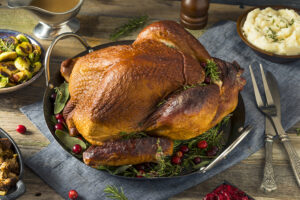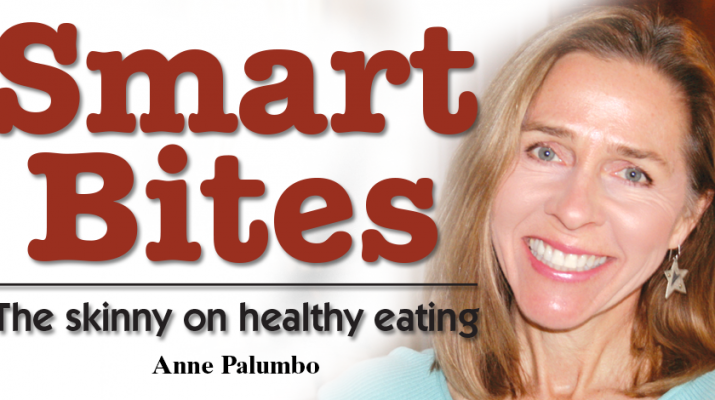 I don’t eat much meat these days. But when I do, I turn to the star of 46 million tables each Thanksgiving: turkey.
I don’t eat much meat these days. But when I do, I turn to the star of 46 million tables each Thanksgiving: turkey.
Not only does my beloved butterball deliver an impressive cornucopia of nutrients, but it serves them up without much fat or calories.
Let’s start with turkey’s most salient nutrient: protein. Often referred to as the “building block of life,” protein plays a key role in the growth, development and maintenance of cells. Not getting enough of this workhorse nutrient can lead to weakness, muscle wasting, dry hair and skin, fatigue and much more. An average serving of turkey provides about half of our daily needs, perhaps twice that on Thanksgiving!
What’s more, this tasty bird trots out impressive amounts of B vitamins, especially niacin, B6 and B12. All together, these essential vitamins aid in red blood cell production, help convert food to energy and promote healthy nervous and digestive systems. Since B12 deficiency is common as we age—whether through diet or poor absorption—it’s good to know that turkey is an excellent source of this important vitamin.
Consuming turkey also boosts your intake of selenium, phosphorous, zinc and choline. These important minerals each provide a valuable function: selenium helps your body produce thyroid hormones, phosphorous keeps bones and teeth strong, zinc fortifies the immune system, and choline supports brain development and function. New research links low levels of choline to Alzheimer’s disease progression.
What this white meat doesn’t deliver is fat, particularly saturated fat. It’s why experts recommend its consumption over red meat, which can raise your “bad” cholesterol and put you at higher risk for heart disease.
An average serving of skinless breast meat has 140 calories and just 2 grams of total fat (with scant saturated fat), while the same size serving of roast beef has 300 calories and about 20 grams of fat (with 8 grams saturated fat).
If you’re wondering what makes us so sleepy after our Thanksgiving meal, well, not everyone agrees on the cause. While some point to turkey’s tryptophan, a natural sleep narcotic, others blame it on the large amounts of carbohydrates we consume.
Helpful Tips
Look for plump turkeys with a well-rounded breast. Beware of flat spots, which suggest the bird has been thawed and refrozen. If you’re looking for the cleanest option, go with an organic, free-range turkey that has been raised without antibiotics and fed an organic diet. And if you’re looking for the leanest cut, go with skinless, white meat. By the way, no hormones are ever used in the production of any US turkey.
Cream of Turkey and Wild Rice Soup
Serves 4 Serves 4 • Adapted from eatingwell.com
 1 tablespoon olive oil
1 tablespoon olive oil
2 ½ cups sliced mushrooms, (about 8 ounces)
1 cup chopped celery
1 cup chopped carrots
½ cup chopped onions
¼ cup all-purpose flour
½ teaspoon salt
¼ teaspoon freshly ground pepper
4-5 cups reduced-sodium chicken broth
1 cup quick-cooking or instant wild rice
3 cups shredded or diced cooked turkey
½ cup reduced-fat sour cream
1 teaspoon thyme (or spice of choice)
1. Heat oil in a large saucepan over medium heat. Add mushrooms, celery, carrots and onions; cook, stirring, until softened, about 5 minutes. Add flour, salt and pepper; cook, stirring, for 2 minutes more.
2. Add broth and bring to a boil, scraping up any browned bits. Add rice and reduce heat to a simmer. Cover and cook until the rice is tender, 5 to 7 minutes. Stir in turkey, sour cream, and thyme; cook until heated through, about 2 minutes more. Add more broth, if needed.

